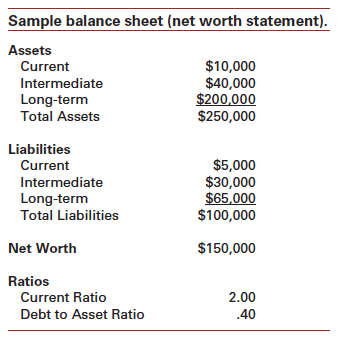
For businesses between $1-10M, an in-house controller would likely play the dual role of quasi-CFO and bookkeeper supervisor. After the business scales past $10M annual revenue, their time is mostly consumed with generating financial reports, managing internal controls, and supervising the accounting department. However, if you are a small business, this role will be someone who can do multiple jobs within your financial operations. A CFO is a trusted advisor who provides strategic business analysis and direction to the CEO, President, and other C-suite executives while running the organization’s financial team.
Your CFO plays a more significant, more strategic, and forward-thinking role. The Controller position usually reports to the CFO and is only one aspect of the CFO’s responsibility. At The CEO’s Right Hand, we provide strategic financial advice and tactical accounting support to clients across all industries.
CFO vs Finance Controller: Who(m) Does your SaaS Business Need?
You’ll get the expertise you need to manage your finances, while keeping your burn rate under control. As with a CFO, you don’t always have Cfo vs controller to hire in-house to get a controller’s functions. Many companies offer outsourced controller services, including us here at Pilot.
The complete range of salaries varies from $50,500 to $133,400 with influencing factors including company size and location. Here are some situations which often prompt small business owners to hire a CFO in addition to or instead of a controller. To give you a little more insight, here are some situations which prompt small business owners to hire a controller. The CFO, in particular those of publicly listed companies, needs to have complete confidence that their subordinates are good. They also need to spend more time analyzing the business opportunities in the external arena.
What Size Companies Bring in CFOs?
Those tasks would be done at the Staff Accountant or lower accounting level so the Controller can focus on telling the story of your financials. Controllers are responsible for managing a company’s financial reports and overseeing internal financial controls. In contrast, CFOs have a broader scope, including managing the company’s financial strategy and analyzing financial data to make informed decisions. Their foremost duty is to ensure that financial accounting and reporting are accurate. As the head of the accounting department, they’re focused on company compliance. Then, the controller focuses more on the company’s tactical responsibilities, such as working on accountant tasks, preparing financial statements, and so on.
You can expect proficiency in Microsoft Office products and relevant software, like QuickBooks and ERP solutions. If you’re looking for someone to manage your financial data and maintain compliance, a financial controller may fit your early-stage SaaS business. He can also spearhead finance operations (FinOps), leveraging technology to increase efficiency in running the finance function. The controller serves as the organization’s Chief Accountant and requires strong professional experience in accounting and financial reporting.
How to decipher the clichés in Seek or LinkedIn Job ads
In a business, the chief financial officer (CFO) and controller work closely together. A comptroller is responsible for an organization’s overall financial management. This includes developing financial plans, overseeing investments, and managing bookkeeping tasks such as accounts payable.
- Today with businesses facing economic challenges, driving profitability by enabling efficient revenue practices has become a crucial responsibility for CFOs and finance controllers.
- While the CFO is the primary person in charge of a company’s financials, the role goes far beyond that.
- Pilot is not a public accounting firm and does not provide services that would require a license to practice public accountancy.
- They also suggest business improvements that help achieve your goals for the business.
The distinction of CFO vs controller appears insignificant at first because of how much their tasks and responsibilities overlap. As they are professionals in accounting, controllers must uphold compliance with all current Generally Accepted Accounting Principles (GAAP) and tax laws. In addition, this is a technical position that calls for awareness, focus, and accuracy. Finally, they place a lot more emphasis on capital markets, investment, and financial planning than they do on the regular accounting work required to keep their business running effectively. At KayOne Consulting, we help clients on key strategic issues, leveraging our deep industry expertise.
Controller vs CFO
For example, project-based businesses like general contractors might have a controller support the purchasing process to keep expenses in line and establish reporting to enable job/project profitability monitoring. While some companies benefit from a fractional controller starting at $500K to $1MM, almost all companies have a controller by the time they reach $10MM in annual revenue. We often see commonalities with controller roles based on the annual revenue of the company. To simplify the major difference, a CFO will often be involved in fundraising and finance strategy, whereas a controller’s responsibilities usually stop at ensuring accurate reporting. There are many reasons small business owners consider beefing up their finance team.

Successful finance controllers have expanded their role beyond administrative and accounting policies and work closely with CFOs to develop strategic finance initiatives. “The tone at the top plays a key role in ensuring how well the finance function influences other departments and processes,” – Mike Beach, CFO, Chargebee. In terms of skillsets, a CFO’s skills may be the same as a Controller, but a CFO must be certainly involved with both the business and the numbers from an early stage. You can acknowledge that, at least when your business is still young, it’s simple to see how one individual might perform both duties concurrently.
Controllers also manage the monthly, quarterly, and annual financial close process, ensuring the financial statements are produced in accordance with GAAP. Other important duties include tax accounting, management reporting, and variance analysis, as well as managing both internal and external audits. The chief financial officer (CFO) is a company’s most senior finance employee, and is ultimately responsible for everything related to the company’s finances.
The CAO is the second-highest ranking finance professional in an organization, reporting to and working directly with the CFO. As the role of CFO has become more demanding, CAOs oversee the tactical and operational tasks that CFOs once dominated. Chief accounting officers are often tasked with SEC reporting, regulatory compliance, corporate governance, risk management, cost management, and environmental, social, and governance (ESG) reporting. The biggest difference between a controller and CFO is that the controller is responsible for keeping your company’s financial records in order today, while the CFO builds a financial strategy for the future. This is an important distinction because each role requires a related, but nuanced skill set and serves a different need. When, as an accountant, you get really good at accounting and financial reporting and develop the ability to manage several different activities and supervise people, you can become a financial controller.
It’s worth noting that you don’t necessarily need a full-time, in-house CFO to handle these things. Companies who aren’t ready to hire a CFO can use outsourced CFO services to gain access to senior financial expertise, without the large expense of hiring a corporate officer. If there is a CFO, the controller reports to them in addition to managing payroll processing, financial reporting, and assisting in building operational budgets. A large part of their job involves anticipating business risks and then taking the proper actions to mitigate those risks. In addition to providing the business with its forward momentum, they also advise key stakeholders on critical company decisions.
Tesla CFO, ‘Master of Coin’ Zachary Kirkhorn steps down – TechCrunch
Tesla CFO, ‘Master of Coin’ Zachary Kirkhorn steps down.
Posted: Mon, 07 Aug 2023 07:00:00 GMT [source]
A Chief Financial Officer (CFO) is the financial general of the company. It’s their job to manage and monitor a department of accountants and financial analysts. In that capacity, they oversee mission-critical tasks like forecasting, planning, and analysis. According to CFO.com, the average cash compensation for a CFO providing CFO services for startups such as in a private company with less than $20MM in annual revenue is $194,354. CFOs for private companies with $21-$99MM in annual revenue make an average of $237,983 in base salary.
This post was reviewed by our team of accounting and financial experts. TGG’s mission is to make business owners’ lives better through excellent financial management. We strive to provide the most up-to-date and objective information on accounting-related topics so our readers can make informed decisions based on factual content.